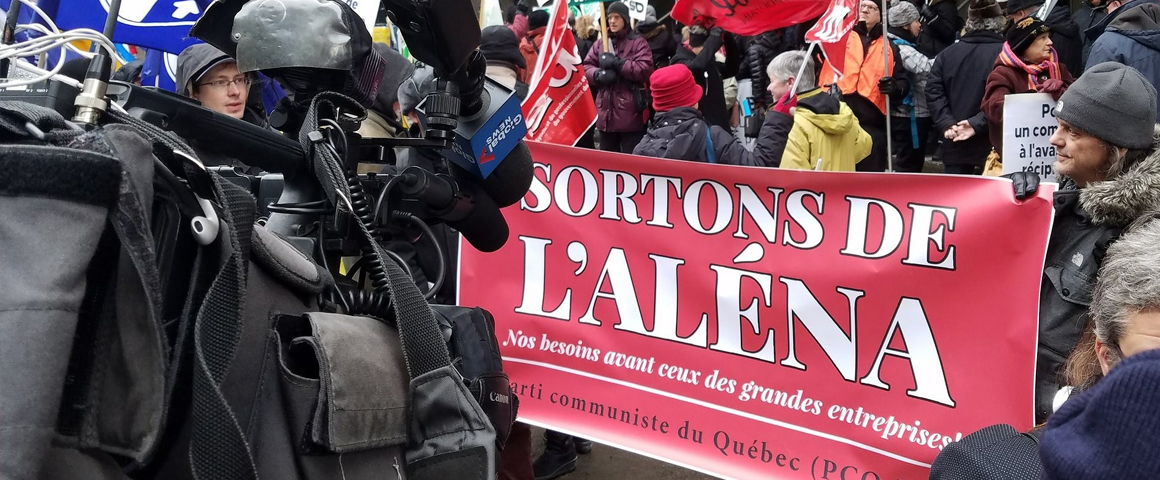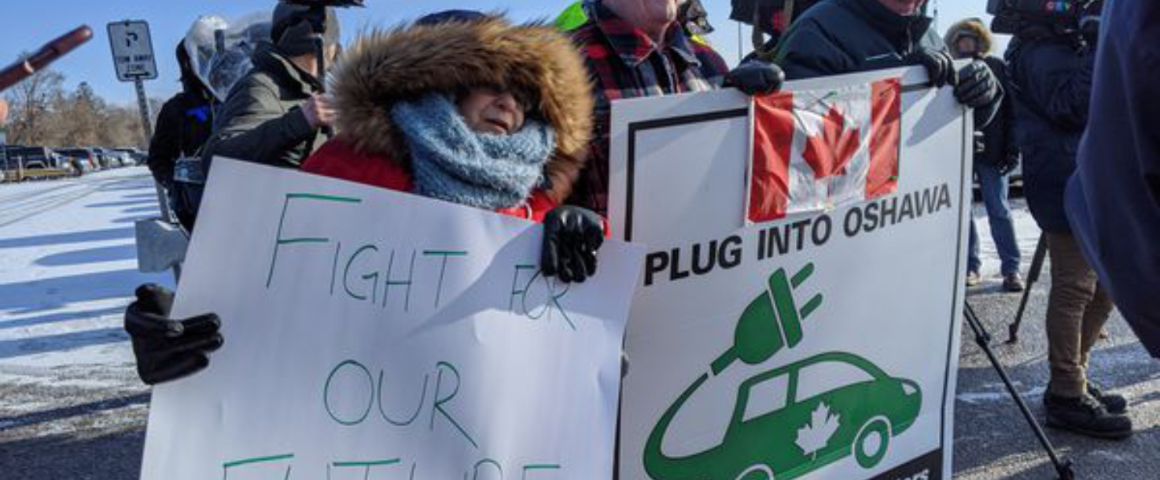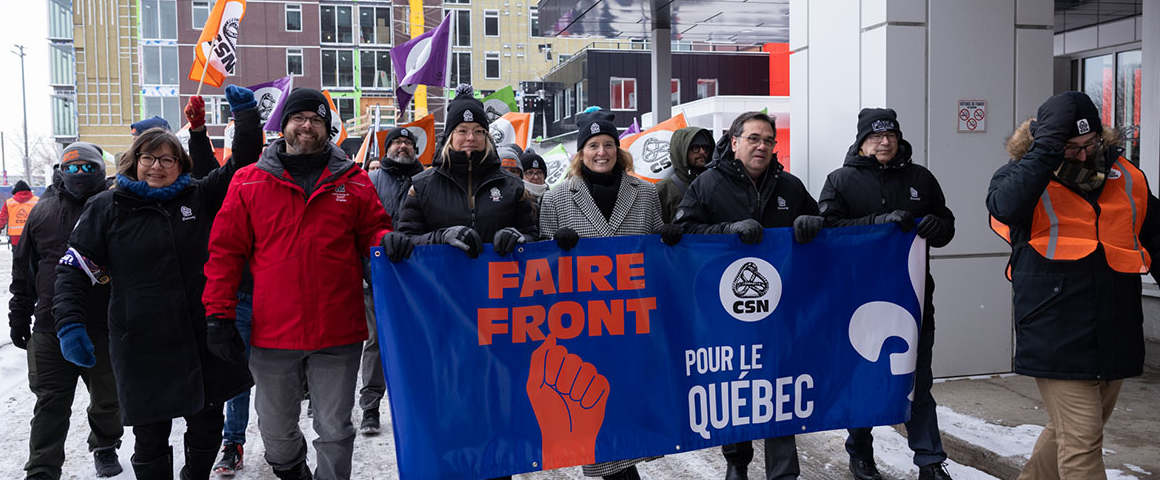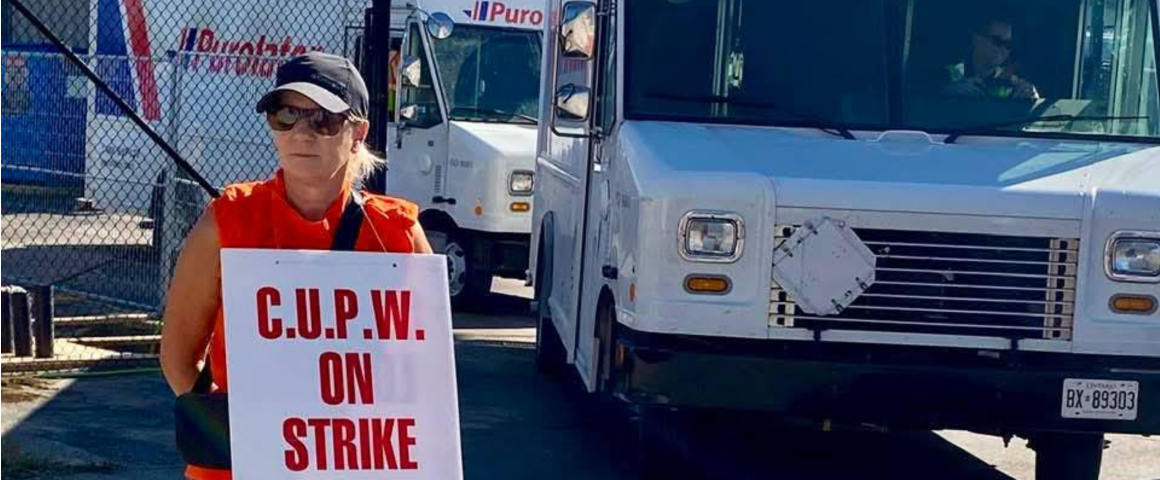April 19 – The Communist Party of Canada today warned that Canadian negotiators led by Chrystia Freeland could be trading away key items demanded by Trump and US chief negotiator Robert Lighthizer in NAFTA negotiations fast-tracked to conclude by the end of April ahead of Mexican and US mid-term elections.
Freeland is in Washington for the second time in 2 weeks, meeting with Lighthizer and Ildefonso Guajardo, Mexico’s Secretary of the Economy and chief NAFTA negotiator.
In March, Lighthizer announced the US was withdrawing its demand that 50% of automobile content had to be produced and assembled in the USA; a demand that would have destroyed the auto parts and assembly industry in Canada, killing hundreds of thousands of good jobs and throwing a spanner into the engine of the Canadian economy. The US stepped back because they knew the Canadian government could never agree to this demand and expect to survive the next federal election.
This demand was on the table so that it could be taken off at a critical moment when maximum pressure could be exerted to get something else agreed to by Canadian negotiators; something big and hard for Canadians to swallow.
Lighthizer gave some ideas when he pointed to Canada’s supply management system in agriculture, which provides dairy, egg, and poultry farmers with production quotas and a guaranteed income. This system ensures farmers don’t go bankrupt due to “market forces”, like is happening to US dairy farmers in the states bordering Quebec and Ontario. A glut in milk production has seen milk prices plummet with small farms going belly up as a result of the US’ unregulated “free” market. It’s not unfair trade that’s caused this misery to small US dairy farmers, but US deregulation and other dog-eat-dog policies.
Big corporate interests in Canada have also been calling for an end to supply management policies in agriculture, and they’ve had some success under Tory and Liberal governments which killed the Wheat Board and the Crow rate despite mass opposition by farmers and consumers.
Trudeau and Freeland are being invited to kill off supply management in dairy, egg and poultry under the protective umbrella of NAFTA negotiations, instead of the intensifying demands of Big Business here in Canada for bigger corporate profits at the expense of family farmers.
Lighthizer has also suggested that steep tariffs on softwood lumber, steel and aluminum could all disappear if Canada would agree to US terms on softwood lumber. These terms set new rules for unrestricted access to softwood lumber (mainly in BC but also across Canada) at prices to be set in the US.
Lighthizer also suggested getting rid of the Dispute Panels where Canada has won every single trade dispute with the US on softwood lumber – a very valuable and essential dispute resolution panel for Canada which is the reason why the US wants to get rid of them.
These should not be confused with the ISDS (Investor State Dispute Settlement) provisions which allow corporations to sue governments, and which has already cost Canada $314 million under the current NAFTA rules.
Lighthizer also pointed to procurement policies that the US wants Canada to adopt: policies that would enable US multi-national corporations to invest in public services and social programs in Canada directly and through P-3 arrangements that would quickly privatize Canada’s universal healthcare and public education systems, and prevent the establishment of new universal social programs such as childcare.
Much more is in the balance in these final days of negotiations which appear to be coming to a close with a new NAFTA deal signed by the US, Mexico and Canada – details to be publicly unveiled down the road or maybe never. In the rush to beat the clock, the shroud of secrecy is greater than ever, the better to hide the dirty dealing that is selling out Canadian jobs, sovereignty, democracy, and labour and environmental rights.
The struggle to stop this draconian new NAFTA deal might have been won if the fight to stop it had been more united, more broad-based, and if the trade union movement had picked up the fight. As it is, the labour and people’s movements will be fighting the consequences of this anti-people, anti-labour deal for years to come.




